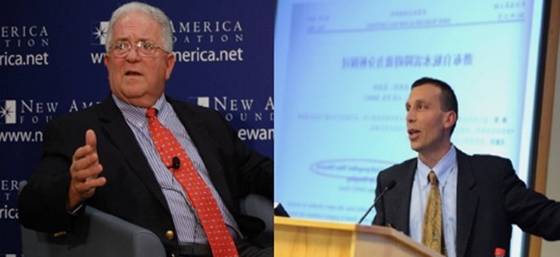Taiwan Studies Views of the Russian Invasion of Ukraine

As the world closely watches the invasion of Ukraine, Taiwan is emerging as a major topic in geopolitical discussions. During the first half of 2022, the Fairbank Center for Chinese Studies at Harvard University and the Boston University Center for the Study of Asia held several symposia and public lectures on topics concerning Taiwan. Three of these were reflections on Taiwan’s geopolitical position in light of Russia’s invasion of Ukraine, each of which examined the pivotal roles of Taiwan in cross-Strait relations.
In a Boston University Center for the Study of Asia symposium on Taiwan on the Frontline, held on March 30, former U.S. ambassador to Saudi Arabia, Charles W. Freeman Jr. and Professor Lyle Goldstein discussed the Indo-Pacific region and described one of Taiwan’s roles as “a cork preventing China from coming out of the bottle”. Former Ambassador Freeman considers this role to be less likely as a long-term solution to Taiwan’s situation. He argued that the cork itself was not stable, and the bottle was on the brink of exploding. He also argued that China was learning from the Russia’s invasion of Ukraine and might be planning cross-Strait landings and unleashing its merchant ships to augment the People’s Liberation Army Navy.
In a public lecture—titled “Taiwan: Asia’s Ukraine”—held there on April 25, Professor Thomas Berger, the director of the Center for the Study of Asia, compared Taiwan and Ukraine and elaborated on how the European and the Indo-Pacific environments differ.
On the 70th day of the Russian invasion of Ukraine, May 2, the Fairbank Center for Chinese Studies held a public lecture— titled “Ukraine Today, Taiwan Tomorrow”— in which Professor Steven Goldstein presented his analyses of Ukraine and Taiwan, China’s strategy against Taiwan and the military measures that Taiwan can learn from the Russian invasion.
Professor Goldstein pointed out that Russia failed to meet its original goal of weakening the West, and that this Russian failure had forced China to realize that the consequences of having sanctions imposed by the U.S. and allies of the U.S. was not to be taken lightly.
All of the speakers at these three events regarded the attitude of the allies of the U.S., including Japan and Australia, to be crucial to helping prevent Chinese aggression against Taiwan.
The speakers agreed that the tense cross-Strait situation requires subtle and careful handling. The U.S. has to revisit its strategic ambiguity. Taiwan has to prepare itself for possible conflict and exploit its advantages over China.